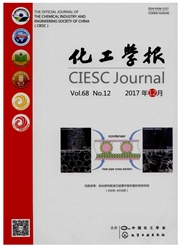

 中文摘要:
中文摘要:
酶催化转化在食品、医药和精细化工等领域起着越来越重要的作用。然而,目前大多数酶反应需要在较温和的条件下进行以维持其正常活性,而在实际应用的逆境中(如高热、高酸、高盐等),酶的耐受性却较差、容易失活从而导致反应效率下降,极大地限制了其推广和应用。因此,对酶分子进行抗逆改造以提高其稳定性和催化活性,是当前研究的热点也是难点。本文从化学修饰和分子改造两个方面总结了酶分子稳定性改造的新进展,从定向进化、半理性设计、理性设计和糖基化修饰4个角度重点阐述了分子改造提高酶稳定性的方法,重点介绍了糖基化作为一种新的酶分子稳定性改造技术的思路。
 英文摘要:
英文摘要:
Enzymes play an increasingly important role in diverse industrial fields such as food, pharmacy and fine chemistry. However, most of the enzymes require mild reaction conditions to maintain the activity, and they have poor tolerance towards heat, acid and salt under stressful conditions in real applications. Thus, the enzymes are very labile to lose their activity, severely limiting their applications. Therefore, it is critical and also challenging to engineer enzymes for higher stability. In this paper, the progress in enzyme stability modification is summarized from perspectives of chemical decoration and molecular modification. The molecular modification is illustrated with regards to directed evolution, semi-rational, ration design and glycosylation, where the glycosylation as a new tool to improve enzyme stability is briefly reviewed.
 同期刊论文项目
同期刊论文项目
 同项目期刊论文
同项目期刊论文
 Effects of a Non-Conservative Sequence on the Properties of beta-glucuronidase from Aspergillus terr
Effects of a Non-Conservative Sequence on the Properties of beta-glucuronidase from Aspergillus terr An environment friendly and efficient process for xylitol bioconversion from enzymatic corncob hydro
An environment friendly and efficient process for xylitol bioconversion from enzymatic corncob hydro A new application of aptamer: One-step purification and immobilization of enzyme from cell lysates f
A new application of aptamer: One-step purification and immobilization of enzyme from cell lysates f Bifunctional Graphene/gamma-Fe2O3 Hybrid Aerogels with Double Nanocrystalline Networks for Enzyme Im
Bifunctional Graphene/gamma-Fe2O3 Hybrid Aerogels with Double Nanocrystalline Networks for Enzyme Im Direct and efficient xylitol production from xylan by Saccharomyces cerevisiae through transcription
Direct and efficient xylitol production from xylan by Saccharomyces cerevisiae through transcription Simultaneous in-situ excess sludge reduction and removal of organic carbon and nitrogen by a pilot-s
Simultaneous in-situ excess sludge reduction and removal of organic carbon and nitrogen by a pilot-s 期刊信息
期刊信息
